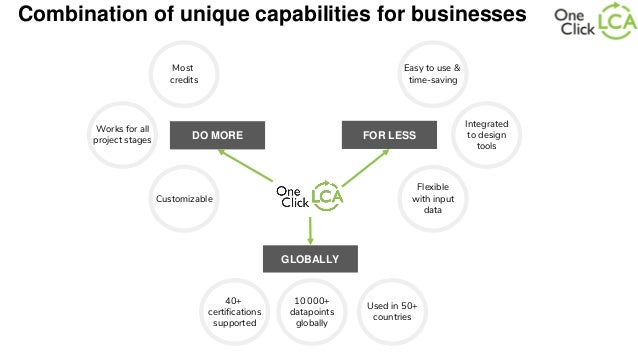
Douglas showcased the capabilities of the new IESVE Interoperability Navigator, coming soon in VE 2017. Our seamless integration with Zoho CRM and Zoho.Software. Accounting and CRM integrations. 2.See corresponding procedure: See corresponding procedure: 202.00 Eligibility Procedure Table of ContentsA much-needed feature for a complete inventory management system. Adjunct Lecturer, National University of Ireland Galway (NUIG) Secretary, ASHRAE Ireland Technical Seminar: Ventilative Cooling & Overheating , April 20, CIT, Cork. Modelling Natural Ventilation in IES-VE: Case studies & Research Outlook Daniel Coakley BE PhD CEM MIEI MEI Research Fellow, Integrated Environmental Solutions Ltd.
Retrofit market 12 E+15 Btu/yr. Energy Savings: New buildings market primary savings potential 4.4 E+15 Btu/yr. Target Audience: Software developers, vendors, users, and regulatory bodies. IES VE.test capabilities and identify strengths, weaknesses, and gaps.


This includes establishing the disability(ies), identifying the impediment to employment and determining that there is a need for vocational rehabilitation services. Assessment for Determining EligibilityThe Assessment begins when an individual with a disability applies for ACCES-VR services with the intent to reach an employment outcome.Existing information will be reviewed by the ACCES-VR counselor to decide if the information is sufficient to determine eligibility. The individual and/or the individual’s designated representative will be involved in and informed about the eligibility determination process and decision. Persons who are not United States citizens must be able to prove that they are legally allowed to work in the United States as determined by the United States Citizenship and Immigration Services (USCIS).
If the applicant is unable to provide appropriate evidence, ACCES-VR will obtain the required information as part of the assessment process.Assessment for determining eligibility is exempt from a financial need review. Referrals made by other agencies should include information about the individual's disability, resulting functional limitations, and how it relates to his/her employment needs.If additional information is needed, the applicant and counselor will decide how best to obtain the information and establish appropriate time frames. This documentation may be from treatment facilities, providers, medical and other diagnosticians, educational sources, Federal or State Agencies, therapists, and professionals who evaluate and report on functional limitations but are not diagnosticians.
These employment factors must be assessed, documented and considered together when determining eligibility and planning services, relying on existing information available from the individual and other sources, as well as situational assessments where appropriate. Eligibility for services must be determined in relationship to the individual’s need for services to achieve an employment outcome consistent with the individual’s employment factors of strengths, resources, priorities, concerns, abilities, capabilities, interest and informed choice. Employment FactorsThe counselor begins the eligibility process with the presumption that all persons can benefit from vocational rehabilitation services in terms of an employment outcome. A determination of eligibility is not a guarantee of the provision of specific services.
While the decision- making process is a collaborative one, the final decision must reflect the vocational rehabilitation counselor’s application of professional judgement applicable laws, regulations, and policies and sound planning considerations of the individual’s employment factors. These resources could be available from the individual, the family, or other community or public sources.Priorities: consistency with and the relationship to the individual’s employment-related preferences, based on informed choice among available options.Concerns: employment-related issues that need to be considered in vocational planning such as financial, self-sufficiency, medical, residential, transportation and family considerations.Abilities: the individual’s existing physical, mental, or functional capacity to successfully engage in employment through natural aptitude or acquired proficiency.Capabilities: the potential for an individual to develop the skills necessary for employment through the provision of vocational rehabilitation services.Interests: occupational areas on which an individual has focused special attention.Informed Choice: the active involvement of participants contributing to the success of and satisfaction with their employment outcomes in the selection of a long-term employment outcome, rehabilitation objectives, and vocational rehabilitation services including assessment services and service providers.While individuals are encouraged and expected to actively participate and make meaningful choices in conjunction with their vocational rehabilitation counselor, participant choice does not mean unilateral control of their programs. These employment factors are:Strengths: the individual’s positive attributes or inherent expertise related to an employment field such as intellectual aptitude, motivation, talents, work and volunteer experience, work skills, work-related hobbies and transferable life skills.Resources: the individual’s sources of available support, including financial, social, information, and technological, on which the person can rely to prepare for and meet employment objectives.
Ies Ve Trial Capabilities Verification Must Be
Criteria for Determining EligibilityThe eligibility determination can only be made by the ACCES-VR counselor, and must be based only on the following criteria:A physical or mental impairment means any physiological disorder or condition, cosmetic disfigurement, or anatomical loss affecting one or more of the following body systems: neurological, musculoskeletal, special sense organs, respiratory (including speech organs, cardiovascular, reproductive, digestive, genitourinary, hemic and lymphatic, skin, and endocrine or any mental or psychological disorder such as intellectual disability, organic brain syndrome, emotional or mental illness, and specific learning disabilities. This verification must be made within a reasonable period of time so that eligibility for vocational rehabilitation services may be made within 60 days of the application for services. If the applicant is unable to provide appropriate evidence to support that he/she is receiving Social Security benefits, ACCES-VR must obtain appropriate releases from the individual and verify the applicant’s eligibility by contacting the Social Security Administration. SSI and SSDI recipients will be considered eligible with at least a significant disability unless ACCES-VR can demonstrate by clear and convincing evidence that the person cannot benefit from an employment outcome because of the severity of the individual’s disability.The individual should provide appropriate evidence to verify that he/she is a recipient of SSI or SSDI benefits.


 0 kommentar(er)
0 kommentar(er)
